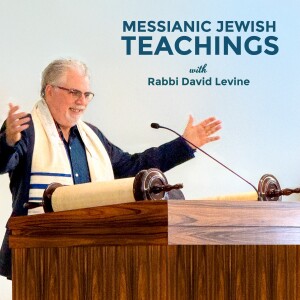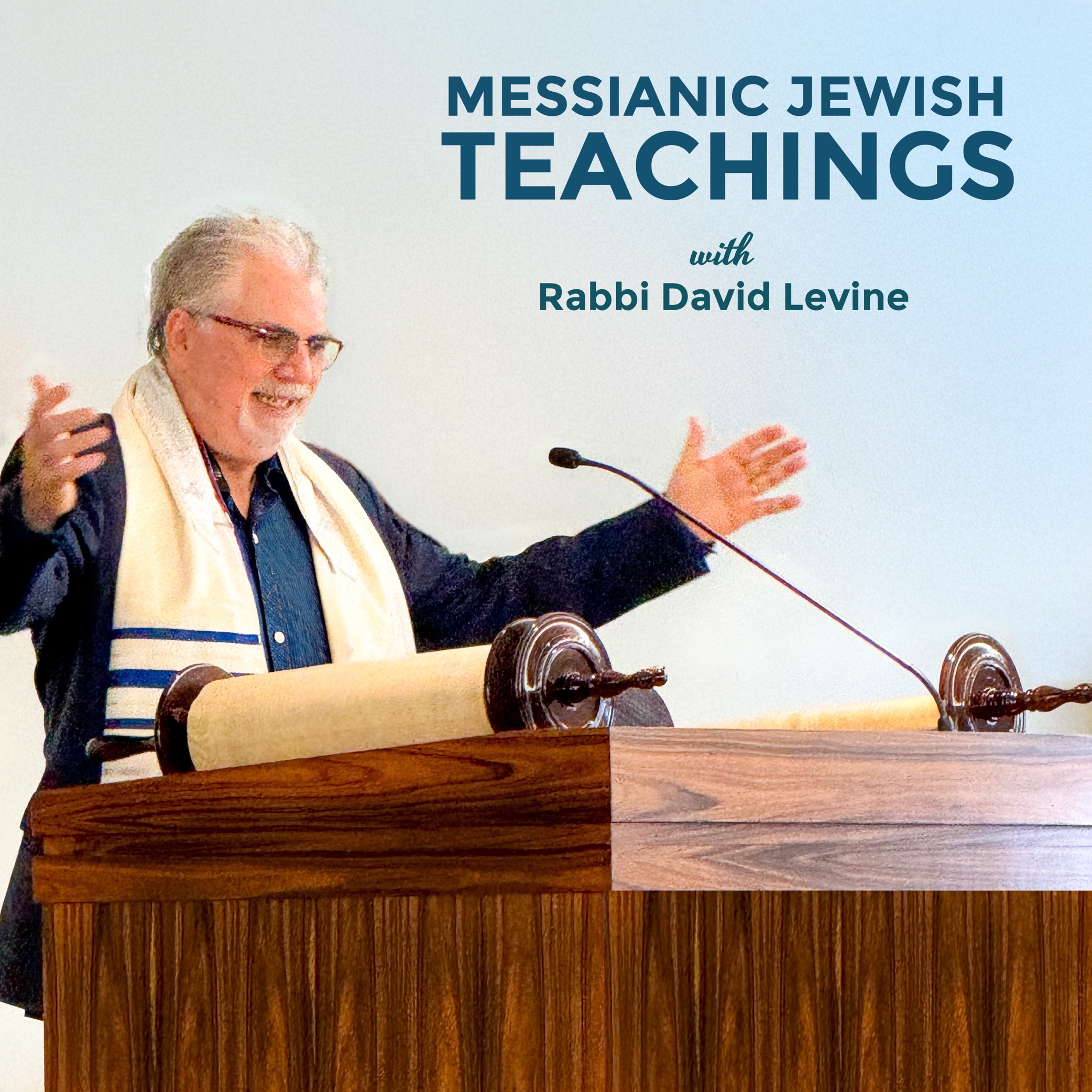Episodes

Friday Nov 30, 2007
Joseph and the Blessing of Abraham
Friday Nov 30, 2007
Friday Nov 30, 2007
Rabbi David Levine Parsha: VaYeshev Genesis 37-40

Saturday Nov 24, 2007
God, Man, or Angel - Who was that with Jacob
Saturday Nov 24, 2007
Saturday Nov 24, 2007
Parsha VaYishlach Genesis 32:3–36:43 Rabbi David Levine This parsha describes the wrestling between Jacob and the one who is described as a Man, God, and an Angel. Rabbi David's message describes several different Jewish attempts to identify this mysterious person, and relates them to Messianic Jewish understandings. This is a thought-provoking message for everyone who takes the Jewish Bible and the God of Israel seriously.

Friday Nov 23, 2007
Israel, The God-Wrestler
Friday Nov 23, 2007
Friday Nov 23, 2007
Rabbi David Levine Parsha: VaYishlach Genesis 32:3-36:43 Jacob wrestles with a mysterious one, and has his name changed to Israel, which means both "God-wrestler" and "God Rules." Jacob says afterwards he saw God and lived, a declaration of great import and power because it helps prepare us for accepting that God can come to earth in many forms, including that of a man. Rabbi David discusses how the those of us today who are dedicated to the God of Israel will also have to wrestle with him in their own ways.

Saturday Nov 17, 2007
Loving the Jewish people God's way
Saturday Nov 17, 2007
Saturday Nov 17, 2007
Parsha VaYetzeh (And Jacob went out) Genesis 28:10-32; Hosea 12:13-14:9 Rabbi David Levine Yom Shabbat, November 17, 2007 Love one another in the way I have loved you, Yeshua commanded his disciples. To fulfill this commandment we need to understand how God loves his people Israel. This message based on Parsha VaYetzeh describes God's promise of faithful love to Jacob in concrete terms. Rabbi David also shows how Ruth's love for Israel and the God of Israel demonstrated just such love. This is a message that will help you practice God's love in your daily life, and will help protect you from mere sentimentalities and vague feelings which can substitute for or masquerade as real love.

Friday Nov 16, 2007
God's Four Promises to Jacob
Friday Nov 16, 2007
Friday Nov 16, 2007
Rabbi David Levine Parsha VaYetzeh (And Jacob went out) Genesis 28:10-32; Hosea 12:13-14:9 November 16, 2007

Saturday Nov 10, 2007
The Wells of Abraham: Jewish identity and Messiah
Saturday Nov 10, 2007
Saturday Nov 10, 2007
Parsha Toldot Rabbi David Levine Yom Shabbat, Saturday, November 10, 2007 Spoken at Congregation Beth Hallel in Roswell (Atlanta) GA.
Jewish identity is a rich inheritance. Rabbi David Levine talks about the value of Jewishness, and compares it to the wells which Abraham dug for his flocks in Canaan. His son, Isaac, had to re-open those wells, because the local Philistines had filled them in. And Isaac went further, digging more wells, and prospering greatly. In this stirring message, Rabbi David discusses the profound integration of Jewish identity and faith in Messiah that Yeshua's disciples experienced on the mountain when they saw Messiah with Moses and Elijah.

Saturday Nov 10, 2007
Living the Life That God Has Given Us
Saturday Nov 10, 2007
Saturday Nov 10, 2007
Elder Rick Gray November 10, 2007

Friday Nov 09, 2007
Re-opening the Wells of Our Inheritance
Friday Nov 09, 2007
Friday Nov 09, 2007
Rabbi David Levine Parsha Toldot Genesis 25:19-28:9; Malachi 1:1-2:7 The riches of our Jewish heritage are passed down from generation to generation. Rabbi David Levine speaks from Parsha Toldot about the need to recover our spiritual inheritance, and compares it to the way Isaac had to re-open wells which Abraham had dug, but which had been filled in by the Philistines. This message will strengthen your faith, and your commitment to Jewish life and spirituality. This message was given to Congregation Beth Hallel in Atlanta, GA.

Friday Nov 09, 2007
Who Are Our Arab Brothers?
Friday Nov 09, 2007
Friday Nov 09, 2007
Dr. Kevin Hunger November 9, 2007 Genesis Chapter 25

Saturday Nov 03, 2007
The Life of Sarah: Faith, Courage, and Humility
Saturday Nov 03, 2007
Saturday Nov 03, 2007
Rabbi David Levine Parsha Chayei Sarah Genesis 23:1-25:18; 1 Kings 1:1-31

Friday Nov 02, 2007
The importance of a Wife
Friday Nov 02, 2007
Friday Nov 02, 2007
Rabbi David Levine Parsha: Chayei Sarah Genesis 23:1-25:18 November 2, 2007

